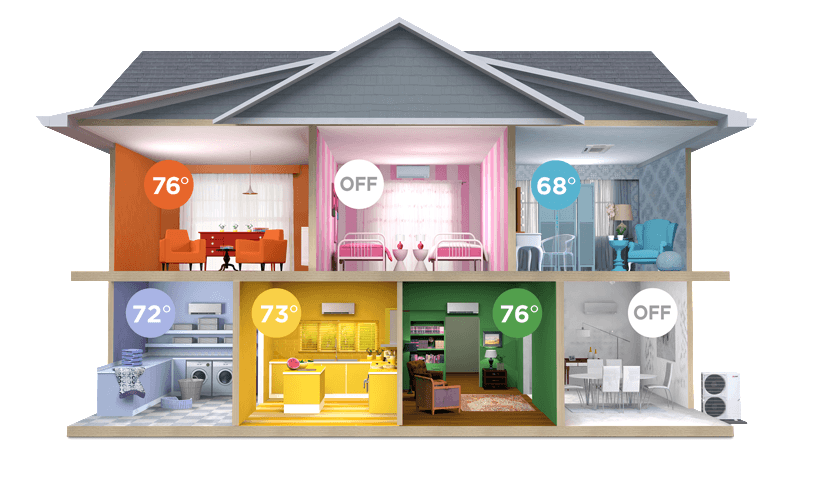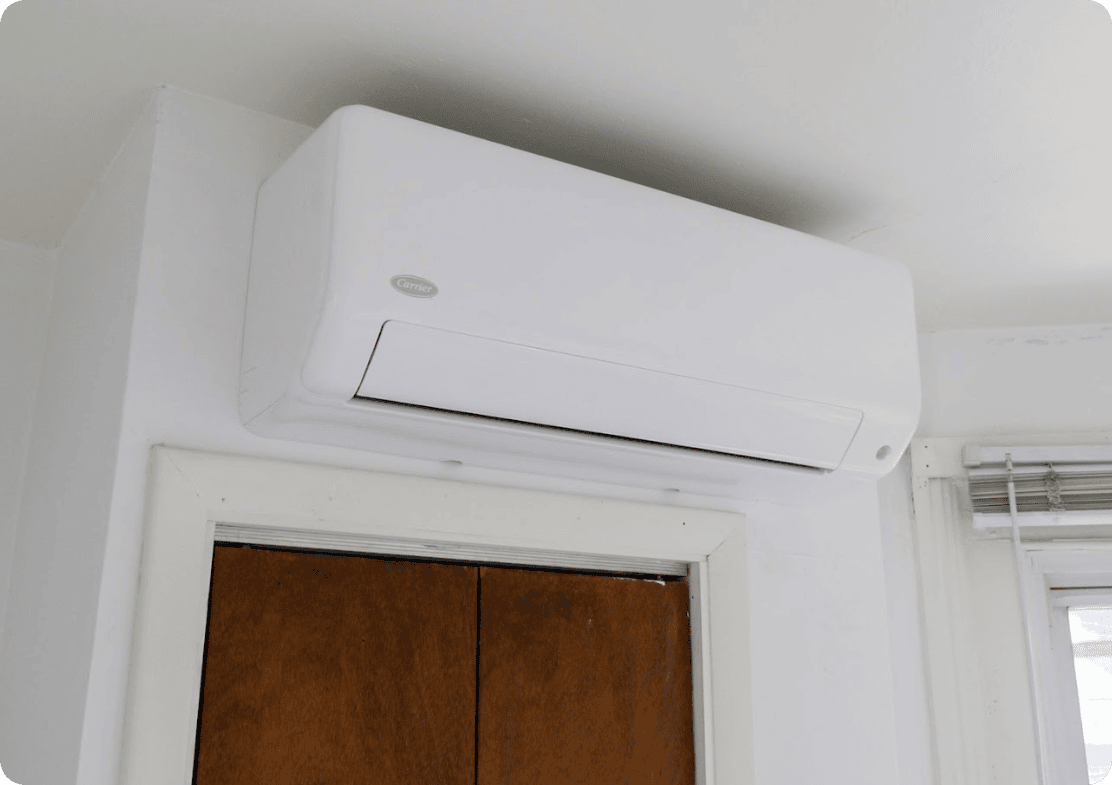What Is Zoned Air Conditioning?
 Zoned air conditioning refers to an AC system that allows for different areas or “zones” within a home or building to be cooled at different temperatures. Zoned heating is also available too. There are a few ways you can zone your HVAC system.
Zoned air conditioning refers to an AC system that allows for different areas or “zones” within a home or building to be cooled at different temperatures. Zoned heating is also available too. There are a few ways you can zone your HVAC system.
One of the ways to zone your HVAC system is to install multiple thermostats connected to a central control panel that operates dampers within the ductwork of your HVAC system. By opening and closing these dampers, zoned air conditioning systems direct airflow to specific areas as needed, providing tailored temperature control throughout the premises.
Another way to zone your heating and cooling is by installing a ductless mini split system. This system naturally creates different zones around your space. Ductless mini splits are spread around a home or business, treating each area, or zone, independently.
In my time working with different HVAC systems, zoning is something that I have found to be very beneficial. Not only does this help improve your comfort, but it also lowers your energy bills. Most people don’t realize how much energy and money they spend treating rooms that aren’t being used.
If you want to learn more about zoned air conditioning, give us a call at (610) 446-7877, or contact us online. Someone here are John Cipollone Inc. will be happy to talk a bit more about what zoned HVAC is, and how it can help your home or business!
What Are The Benefits Of Zoned HVAC?
We’ve already laid out a few reasons that zoned HVAC is a benefit to your space, but here is a little more explanation into why we love a zoned HVAC system!
More Precise Comfort
One of the most significant advantages of a zoned HVAC system is the ability to maintain different temperatures in different parts of your home or building. This means that individual preferences can be accommodated, instead of having to compromise and leave some people less than comfortable.
We see lots of homes that have problems maintaining the right temperatures based on where the room is. For example, in the summer it’s harder to cool the bedrooms upstairs. Instead of cranking up the air conditioning to compensate, freezing out the living room to make the bedroom comfortable, you can simply adjust the temperature in the bedroom without affecting the rest of the house.
Lower Energy Bills
By allowing homeowners to heat or cool only the areas that are in use, zoned HVAC systems are much more energy efficient than traditional heating and cooling systems. The difference is most traditional central air systems are going to treat the whole home the same, and pump air to the rooms that aren’t being used. This targeted approach to heating and cooling can result in significant energy savings, as it reduces the waste associated with heating or cooling unoccupied rooms or zones that do not require it.
Extended HVAC System Lifespan
Because zoned systems can reduce the overall workload on your HVAC unit by selectively cooling or heating only the necessary areas, they can also extend the lifespan of your HVAC system. If you are using the system less, that means less wear and tear, and added years of life to your HVAC system. If you think about how much energy is used to treat rooms that aren’t used, it can literally equate to years of life added back to your heating and cooling system.
Fewer Arguments About The Temperature
We kind of eluded to this already, but a zoned HVAC system can lead to less arguing over the thermostat. Lots of homes, and especially offices, have people who disagree on the temperature. One person likes it warmer, the other likes it cooler, and the never ending battle for the thermostat wages on. With a zoned system, you can have different spaces at different temperatures.
Obviously, if people are hanging out in the same room or zone, there may still be a few battles, but these can be alleviated in most cases. You can keep different bedrooms at separate temperatures. You can have the basement and the living room at different temperatures. In the office, you can have one space at 70 degrees, while another is up at 73. Instead of fighting over the temperature, a zoned system can keep everyone happy!
How Can You Zone Your HVAC?
 Zoning your HVAC system typically involves the installation of additional thermostats and the integration of zone control panels that manage the operation of dampers within your ductwork. The process begins with an evaluation of your home or commercial space to determine the optimal number of zones based on its layout, usage patterns, and the occupants’ preferences.
Zoning your HVAC system typically involves the installation of additional thermostats and the integration of zone control panels that manage the operation of dampers within your ductwork. The process begins with an evaluation of your home or commercial space to determine the optimal number of zones based on its layout, usage patterns, and the occupants’ preferences.
Once the zones are defined, a professional will install the necessary equipment, which includes the zone control panel, thermostats for each zone, and dampers in the ductwork that regulate airflow.
In some cases, especially in homes without existing ductwork or in situations where extensive retrofitting is not feasible, alternative zoning solutions like ductless mini-split systems are a fantastic way to go. These systems can offer zoned temperature control without the need for traditional ductwork, providing an amazing solution for unique spaces or construction limitations.
Zoned HVAC In Havertown, PA
If you are thinking that this sounds like something that would benefit your home or business, give John Cipollone Inc. a call at (610) 446-7877, or contact us online. We have installed countless amounts of ductless mini split systems, and helped zone traditional HVAC systems as well. We can take a look at your ductwork, decide where the best places for dampers are, and then install the thermostats to finish the job.
